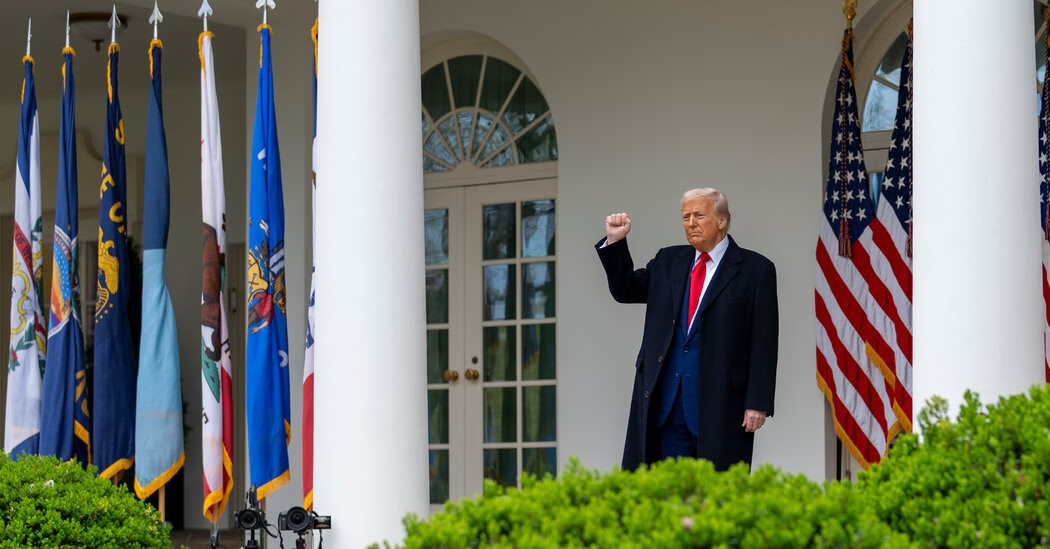In a move that has drawn comparisons to a pivotal moment in British history, President Trump declared a so-called “liberation day” by imposing sweeping tariffs across the United States’ trading partners. This bold action mirrors the UK’s Brexit vote nearly nine years ago, which was seen by its supporters as a liberation from European Union constraints. Economists predict significant turmoil for the global trading system as a result, although the long-term effects remain uncertain.
Trump’s decision echoes the protectionist measures introduced by the EU following Britain’s exit. While the EU has continued to function without the UK, the process has been tumultuous, suggesting similar challenges could lie ahead for the global trading system.
Experts, like Eswar S. Prasad from Cornell University, suggest that while free trade may not be in imminent danger, the era of unfettered access may end. Challenging times may force other countries to either band together to promote trade or become increasingly isolated.
Moreover, the escalation of trade tensions may not only be economically destabilizing but also heighten geopolitical risks. Trade disputes have been historical catalysts for conflict, and a full-blown trade war could exacerbate tensions between major powers, such as the US and China.
Former International Monetary Fund Chief Economist and professor Simon Johnson sees this as an opportunity for Europe to strengthen ties with countries like China and potentially benefit from increased trade in regions like Vietnam. However, this could create challenges for China and its export-driven economy, which may be forced to redirect its exports and decrease reliance on the US market.
The trigger for these shifts in global trade policy is largely due to China’s growing economic prowess, which has concerns that the US economy is being unduly subjected to hypercompetitive trade practices.
Responding to this challenge, past administrations including Barack Obama’s and President Joe Biden’s, have implemented tariffs to address trade imbalances and protect American industries.
Nouriel Roubini, economist and professor, comments on the corresponding economic-philosophical shift, illustrating the growing pressure on the international trade system, an issue that predates the ascent of China. Even still, many argue that trade will remain crucial to economic growth and development, making the complete decentralization of the global economy unlikely and extremely difficult to enact given the interdependence of modern supply chains.
Some, such as Harvard’s Jason Furman, maintain an optimistic stance that while the US trade system might undergo significant changes, the rest of the world may react by forging additional free trade agreements, even if the US is less central to the process.
In conclusion, while the rhetoric surrounding Trump’s protectionist measures evokes twentieth-century comparisons, the underlying dynamics reflect complex modern economic and geopolitical realities. The aftermath of this policy could see broad ramifications for global trade, potentially leading to a reconfiguration of economic alliances, influencing global power dynamics, as well as dramatically impacting low-income countries reliant on exports.
Source: https://www.nytimes.com/2025/04/06/world/europe/trade-trump-tariffs-brexit.html





